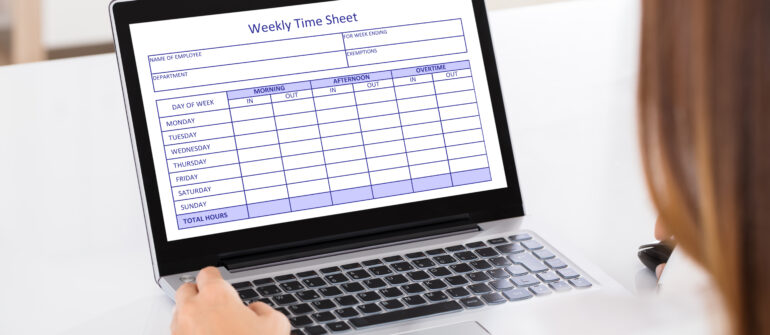Effective management of these elements can significantly enhance a non-profit’s ability to secure funding, optimize resources, and fulfill its mission. Hour Timesheet offers a robust solution that simplifies time tracking and grant management, ensuring compliance and streamlined operations. By leveraging DCAA-compliant tools and seamless integration with payroll systems, non-profits can better navigate the complexities of funding management, ultimately fostering greater impact in their communities.
Understanding the Importance of Grant and Funding Source Management for Non-Profits
Non-profit organizations rely heavily on grants and diverse funding sources to sustain their operations and fulfill their missions. Effective management of these funds is critical for ensuring that resources are used as intended and that compliance with donor stipulations is maintained. Proper grant management involves meticulous documentation, financial tracking, and adherence to grantor requirements, fostering trust and credibility with funders. This not only secures current funding but also enhances the organization’s reputation, increasing the likelihood of future funding opportunities. Effective grant management is essential for maintaining transparent fund utilization and reporting.
Non-profits face significant challenges in tracking and reporting funding, such as the unpredictability of fundraising, complex reporting requirements, and donor restrictions on fund use. These challenges necessitate the implementation of robust financial management systems to ensure compliance and effective reporting. Failure to manage these complexities can lead to adverse outcomes like financial audits, funding losses, and reputational damage.
Time tracking plays a pivotal role in grant management by enhancing transparency, accountability, and compliance. Accurate time tracking ensures that labor and project costs are appropriately allocated to specific grants, which is crucial for meeting reporting requirements and maintaining grant compliance. It also aids in resource allocation, helping non-profits manage multiple grants efficiently by providing detailed insights into how time and resources are being utilized across projects. Effective time tracking can significantly improve financial management in non-profit organizations.
Streamlining Employee Time Tracking in Non-Profits
Accurate time tracking is vital for non-profit organizations, ensuring transparency and compliance with funding requirements. It plays a crucial role in grant reporting, allowing non-profits to demonstrate how funds are utilized, thus satisfying donor stipulations and adhering to IRS regulations. This transparency not only secures current funding but can also lead to increased donor satisfaction and future funding opportunities. Moreover, precise time tracking provides insights into actual program costs, aiding in better staffing and program management decisions.
Hour Timesheet offers a range of features tailored to the unique needs of non-profits, streamlining time management processes. Key functionalities include:
- Mobile Time Tracking: Employees can track their time from anywhere, which is particularly beneficial for non-profits with field operations. This feature ensures that time is recorded accurately and promptly.
- Integration with Payroll Systems: Seamless integration with payroll systems like Gusto, QuickBooks, ADP, and Paychex simplifies payroll processing, ensuring that recorded time is easily accounted for in payroll calculations.
- User-Friendly Interface: Designed for ease of use, the software reduces the learning curve for employees, promoting consistent time entry.
- Comprehensive Reporting and Analytics: Provides detailed reports that help non-profits analyze time data to improve efficiency and project management.
Additionally, using DCAA-compliant solutions like Hour Timesheet ensures rigorous, transparent, and auditable timekeeping processes, which are invaluable for maintaining meticulous records for audits and reporting purposes. This compliance leads to streamlined workflows, improved efficiency, and enhanced accountability within the organization. By leveraging these features, non-profits can enhance their operational efficiency and focus more on their mission.
Leveraging Hour Timesheet for Effective Grant and Funding Management
Non-profit organizations can significantly enhance their grant and funding management processes by utilizing the comprehensive features offered by Hour Timesheet. This timekeeping solution is designed to address the unique challenges faced by non-profits in managing grants, ensuring compliance and optimizing resource allocation. With features like time tracking, job costing, and integration with payroll systems, Hour Timesheet streamlines the financial reporting process, a critical aspect for organizations that depend on grants.
One of the key benefits of Hour Timesheet is its ability to allocate employee hours to specific grants and funding sources. This ensures that labor costs are accurately tracked and reported, a crucial requirement for compliance with funder stipulations. For instance, a non-profit organization managing a federal grant can utilize Hour Timesheet to track time spent on grant-related activities, providing detailed reports to funders and showcasing effective resource allocation.
To maximize the benefits of Hour Timesheet for grant and funding management, non-profits can follow these tips:
- Integration with Financial Systems: Utilize Hour Timesheet’s seamless integration with systems like QuickBooks and ADP to streamline financial reporting, ensuring accurate tracking of funds across projects.
- Regular Training: Conduct regular training sessions for staff to familiarize them with timekeeping procedures, maintaining compliance and accuracy in reporting.
- Utilize Reporting Features: Leverage Hour Timesheet’s robust reporting and analytics features to generate detailed reports for grantors, enhancing transparency and accountability.
- Customize Time Tracking: Set up the system to categorize time entries by project and funding source, providing granular data for reporting purposes.
By adopting Hour Timesheet, non-profits can improve their grant management processes, ensuring compliance with stringent reporting requirements and ultimately enhancing their ability to secure and effectively utilize funding.
Empowering Non-Profits with Effective Time and Grant Management
Utilizing Hour Timesheet provides non-profit organizations with a powerful ally in managing grants, funding sources, and employee time tracking with precision and ease. Through its comprehensive features, Hour Timesheet not only addresses the complex needs of grant management but also enhances operational efficiency and transparency. Non-profits can allocate resources more effectively, ensure compliance with funding requirements, and provide accurate reporting to donors and stakeholders. By adopting Hour Timesheet, organizations are empowered to focus more on their mission and less on administrative burdens, ultimately amplifying their impact within the communities they serve.
For non-profits striving to optimize resource management and secure funding, Hour Timesheet proves to be an invaluable tool. The software’s DCAA-compliant features and integrations with popular payroll systems offer a seamless experience, making it easier for organizations to manage their financial and human resources. By leveraging these capabilities, non-profits can achieve greater transparency and accountability, fostering trust and credibility with funders and supporters alike. To explore how Hour Timesheet can transform your organization’s time tracking and grant management processes, visit Hour Timesheet’s website and begin your journey towards more efficient and effective operations.
Start your free trial or schedule a demo or Hour Timesheet today!


